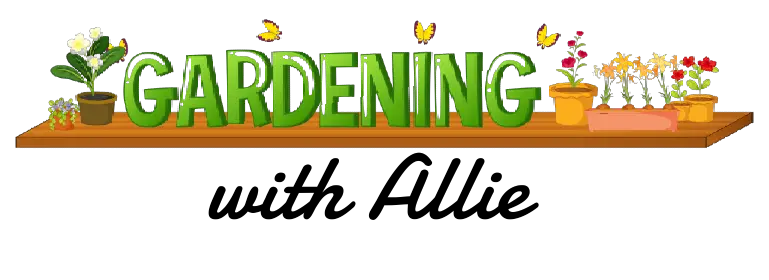We usually think of tomatoes being a vibrant red color. Well, that’s how they should be, right? Sometimes, while walking in your garden, you may see some tomatoes with white splotches or turning all white! Although it is an everyday occurrence, your tomatoes could have a disease. So, to answer your question of why are my tomatoes turning white?
When your tomatoes are turning white, they may be suffering from sun-scald. They could also be suffering a nutrient deficiency, or you may have a bug problem on your hands. Cold temperatures, and even the tomato variety can cause white spots.
In this article, we will take a look at all the reasons why your tomatoes are turning white and how to solve your problem.

Why Are My Tomatoes White on the Inside?
You may pick the perfect red tomato only to find that it’s white on the inside. There are a few reasons why this could be happening, both with the weather. A tomato that is white on the inside has a disorder called internal white tissue.
Perhaps the sun was beating down too hard on the tomato, causing the outside to ripen faster than the inside. The other problem was that it was simply too hot! Tomatoes do best in temperatures no hotter than 85. If it is going to be that hot, shade your tomatoes, or make sure they have a healthy dose of water.
It is perfectly okay to eat these tomatoes that are white inside. However, the texture may be a little off. The majority of people will just cut out the white parts.
7 Top Reasons Your Tomatoes are White
Here is a list of every reason why your tomatoes are white.
Too much sunlight (sun-scald)
- Sun-scald is what occurs when your tomatoes plants get too much direct sunlight throughout the day, especially if it’s above 85 degrees.
Too cold
- White spots due to the cold weather happen because the cold causes the tomatoes cells to close up.
Fungal Disease
- Overwatering is a key component of fungus.
Nutrient Deficiency
- When tomatoes lack calcium, nitrogen, magnesium, or phosphorus, the plant won’t have what it needs to turn your tomatoes red.
Pest Damage
- When bugs eat away at a plant, it can turn the spot they are eating white. Stinkbugs are a common pest tomato plants face.
Variety
- Great White Tomato, White Beauty, Snowball, and White Wonder are all examples of heirloom tomato varieties.
Bacterial Canker
- Bacterial canker is a bacterial disease that attacks the stems and the leaves. It will also leave the plant’s fruit with many white spots all over. You will notice it if your plant isn’t growing correctly, or the leaves begin to wilt or look brown/yellow. Some branches from the plant may also fall off and die.
Solutions
Now that we have seen all the reasons for our whitening tomatoes let’s look at how to solve these issues!
| Problem | Solution |
| Sun-Scald | Unfortunately, since sun-scald is not a disease, it can not be reversed. You can add shade cloth, or mulch around your plant for added protection to help prevent any more damage. In the future, keep weather and location in mind. |
| Cold Weather | Cold weather spots are also irreversible. If it is a colder season, keep your tomato plants indoors, or in a greenhouse. If a sudden frost is coming on, cover your plants with a light sheet. |
| Fungal Disease | Well-drained soil is key to keeping fungus out of your plants. Remember to only water your plant when it needs water, if the soil is moist, its okay to leave it. There are some fungicides you can spray on your plants to stop the fungus from growing. |
| Nutrient Deficiency | Prior to planting your tomatoes, get a mix of fertilizer that is rich in nitrogen, phosphorus, magnesium and potassium. The key to spotting a nutrient deficiency is in the leaves. Look for yellowing or browning leaves, or leaves that look burnt or scorched. You can always feed your plants these nutrients with a liquid feed later on. |
| Pests | Pests are the easiest problem to spot. Usually the bugs are visible to the naked eye. If not, you’ll see holes in the tomato and the leaves. You can hand-pick these bugs off or make a homemade pest repellent. Mineral oil and water works wonderfully. You can also put Diatomaceous Earth around your plant as well. |
| Variety | Take a close look at the types of seeds you get when buying tomato seeds! There are so many different breeds of tomato and you could just have a white breed tomato in the mix. |
| Bacterial Canker | Bacterial Canker spreads very quickly and can quickly kill your whole tomato plant. The easiest thing to do is to cut off the branches that seem effected. Unfortunately, there are no known sprays that can kill bacterial canker, so your best bet is to catch it quickly. Tomatoes affected by bacterial canker are still safe to eat. |
Can you Eat White Tomatoes?
No matter the issue, white tomatoes are perfectly fine for eating. If you are concerned about bugs, cut into the part with the white spot first. Remember that tomatoes with white spots will spoil faster once they’re picked.
Should I Use Fungicide Spray on my Tomatoes?
If you have a pesticide or fungal problem, an easy out is to use spray on your plants. However, a lot of this spray on the market is full of chemicals that we don’t necessarily want in our bodies. A great alternative is to make a mixture of baking soda, warm water, and a drop of liquid dish soap. You can use this combination to try and combat both fungal issues and pests. It’s also a great all-natural alternative.
Now that we have looked at every reason why your tomato is turning white, I hope you can identify your issue as quickly as possible. From bugs to disease to simply an heirloom variety, it isn’t the end of the world if your tomatoes have white spots. Look on the bright side; whatever the problem is, you can still enjoy your delicious juicy tomatoes!

Hi there, my name is Allie and welcome to my blog; GareningWithAllie!
Much of what you see written here is just our personal experiences with gardening. Along with the content I write here, there is also a unique collection of gardening topics covered by some of our close friends. I hope you find everything you read here to be helpful, informative, and something that can make your gardening journey the most lovely experience ever! With that said, Happy Gardening!
